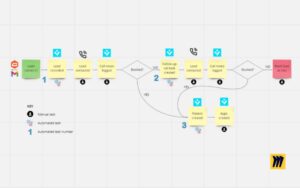The Personal Development Blog

How CEOs Incorporate Family Time Into Mornings
In the race to lead companies, close deals, and hit targets, it’s easy to let personal time slip away. Yet, the most respected CEOs often start their day not with emails — but with family.
The morning may be short, but it’s powerful. It sets the emotional tone, strengthens connection, and reinforces values. This blog explores the family morning habits that top leaders use to stay grounded and present. You’ll find practical strategies for balancing being a CEO with family life. Learn how to manage your time well, so you can include your loved ones instead of leaving them out.
Why Morning Family Time Matters
A leader’s schedule is demanding, but the quality of home life often fuels professional resilience. Incorporating family into the early hours builds deeper relationships — without compromising performance.
Benefits of Morning Connection:

- Creates emotional grounding before stressful days
- Reduces guilt or disconnection from loved ones
- Models calm, structured behaviour for children
- Promotes happier, more present leadership at work
- Boosts personal wellbeing and daily satisfaction
A strong business is easier to build when the foundation at home feels solid.
How Top CEOs Balance Family in Their Mornings
Many top executives, even with busy schedules, still find time to begin their day with loved ones, not just with strategy decks
1. Tim Cook – CEO, Apple
He starts his day early for workouts and planning. He also makes time for personal reflection and family awareness.
Satya Nadella – CEO, Microsoft
Emphasises empathy and presence. Often starts his morning slow, making time to connect with family before stepping into work mode.
Jessica Alba – Founder, The Honest Company
Schedules breakfast with her kids as a non-negotiable. Keeps business out of the kitchen to stay fully present.
Indra Nooyi – Former CEO, PepsiCo
Praised for building boundaries early in her career. Set routines that protected mornings for her daughters before long boardroom days.
These leaders don’t add family to the end of a checklist — they build it into the rhythm of their day.
Family Morning Habits That Actually Work
Not all routines look the same. The goal is connection, not complexity. Here’s how CEOs and high performers structure their time.
1. Eat Breakfast Together
Even 15 minutes around a table can create calm and bonding. Keep phones away. Ask one thoughtful question. Share plans for the day.
2. Share a Morning Walk or Drive

Take a short walk, drive to school, or even do stretches together. The movement helps conversation flow naturally.
3. Read or Reflect Side-by-Side
Silent presence counts. Reading or journaling together helps children mirror focused behaviour.
4. Review the Family Calendar
Align schedules. Discuss logistics with your partner. Reduce surprises. This also teaches children how planning creates success.
5. Start a Morning Ritual
Create a consistent anchor — a shared quote, a song, a goodbye mantra. These rituals build emotional safety and predictability.
Time Management Success: Making It Possible
You don’t need extra time. You need focused time.
Make Family Mornings Work — Even With a CEO Schedule:
1. Wake 30 Minutes Earlier
Protect time before the world starts asking things of you. Use it for calm, connection, or shared routines.
2. Set “No Meeting” Zones Before 9:00 AM
Block your calendar. Let your assistant or team know. Create non-negotiable family zones during breakfast or commute.
3. Prepare the Night Before
Layout clothes, prep breakfast, review logistics. Reduce morning stress to make room for connection.
4. Use Buffer Time Before Leaving
Don’t run out the door. Leave 10 minutes for hugs, chats, or problem-solving.
5. Stack Habits
Combine personal prep (like stretching or planning) with shared time. Children can journal while you do your agenda. Your partner can sit with tea while you review priorities.
Sample Morning Family Routine for Busy Leaders
Here’s a sample 60-minute structure that blends productivity with presence:
| Time | Action |
| 5:30 AM | Wake up, stretch, hydrate (solo) |
| 5:45 AM | Journal or review calendar (solo) |
| 6:00 AM | Family breakfast (shared) |
| 6:30 AM | Help children prep for school (shared) |
| 6:45 AM | Quick walk or drive together |
| 7:00 AM | Transition to focused work |
Even 30-minute versions of this routine can create lasting impact.
Why Morning Family Time Boosts Work Performance

You may think you’re sacrificing work hours by adding family time — but the reverse is often true.
Here’s What CEOs Report:
- Clearer thinking throughout the day
- Less guilt or mental fragmentation
- More joy before tackling stressful tasks
- Higher resilience and lower stress spikes
- Stronger leadership through emotional grounding
Connection at home builds composure in the office.
Handling Setbacks Without Losing Your Routine
Not every morning will go to plan. Children get sick. Meetings get added. Energy dips. The key is adaptation, not perfection.
Tips for Staying Consistent:
- Have a 15-minute “core ritual” to fall back on
- Communicate changes with your family openly
- Keep weekend routines steady if weekdays shift
- Reflect on what matters most: presence, not performance
You’re teaching leadership through example — even in chaos.
Digital Tools to Support Morning Family Time
Use technology to make mornings smoother, not busier.
Apps and Tools That Help:
- Cozi: Shared family calendar
- Trello or Notion: Visual boards for family planning
- Time-blocking tools: Set visible family time blocks in your work calendar
- Morning playlist: Create a shared music habit to start the day together
Make tech serve your values — not the other way around.
Family Habits That Raise Future Leaders
The benefits of morning connection extend far beyond today. They shape how your children view success, routine, and emotional resilience.
Lessons You Model in the Morning:
- Focus and presence in a distracted world
- Calm leadership under time pressure
- Kindness during routine moments
- Planning as a tool for freedom
- Emotional connection as part of success
Your children won’t remember every spreadsheet — they will remember how you greeted them in the morning.
Evening Prep for Better Mornings
Strong mornings begin the night before. Set up tomorrow’s success before the day ends.
Evening Checklist for Morning Wins:
- Review your schedule and your child’s
- Lay out clothes and pack bags
- Discuss tomorrow’s challenges together
- Set a shared goal or intention
- Get 7+ hours of sleep (yes, this matters too)
Preparation builds peace.
Balancing Family with Ambition
You don’t have to choose between excellence at work and connection at home. The best leaders protect both.
Balance Is Built Through:
- Planning — not just hoping
- Boundaries — clear and respected
- Communication — with your team and your family
- Flexibility — adjust but stay consistent
- Presence — even 15 minutes of full attention beats 1 hour of distraction
Success isn’t just output. It’s alignment with what matters most.
Presence Is the Most Powerful Habit
As a CEO, your time is pulled in every direction. But the minutes you spend each morning with your family create a foundation stronger than any strategy.
Family morning habits aren’t soft. They’re powerful. They lead to better focus, stronger relationships, and long-term clarity.
Through simple CEO balance strategies, you prove that success can be sustainable, human, and deeply connected. Time management success isn’t about squeezing more in — it’s about making space for what matters most.
So tomorrow morning, don’t just prep your schedule. Share your presence. Start with the connection. Lead from home.









